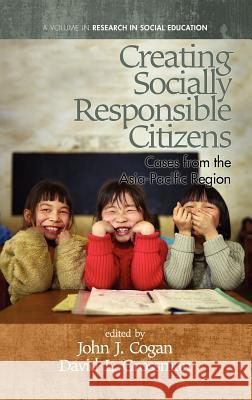Creating Socially Responsible Citizens: Cases from the Asia-Pacific Region (Hc) » książka
Creating Socially Responsible Citizens: Cases from the Asia-Pacific Region (Hc)
ISBN-13: 9781617359545 / Angielski / Twarda / 2012 / 182 str.
Creating Socially Responsible Citizens: Cases from the Asia-Pacific Region (Hc)
ISBN-13: 9781617359545 / Angielski / Twarda / 2012 / 182 str.
(netto: 368,25 VAT: 5%)
Najniższa cena z 30 dni: 381,94
ok. 30 dni roboczych.
Darmowa dostawa!
This book originates from a collaborative research initiative to examine how various societies in the Asia- Pacific Region construct moral and civic education, and to what extent these systems achieve the democratic objective of creating socially responsible citizens. In many western societies there is at least a rhetorical tendency to separate the moral and civic dimensions of citizenship education, and in some cases to exclude the moral dimension from the discourse of preparing citizens. However, as cross-societal dialogues and research about citizenship education have increased in the past two decades, scholars have identified differences in the emphasis put on the moral dimension of citizenship education across the Asia-Pacific region. In many predominantly Confucian, Islamic and Buddhist societies, for example, the emphasis on the moral dimension of citizenship education is explicit, and in some cases, central. While awareness of a divide, or perhaps more appropriately a continuum in the role of moral versus civic education in democratic societies has been recognized for some time, to our knowledge this book marks the first effort of this scope to address the issue of the moral/civic divide in citizenship education. Thus, through a cross-cultural dialogue across societies in the Asia-Pacific Region, this book addresses the issue of whether elements of both civic and moral education can be effectively joined to create a "socially responsible" citizen.











